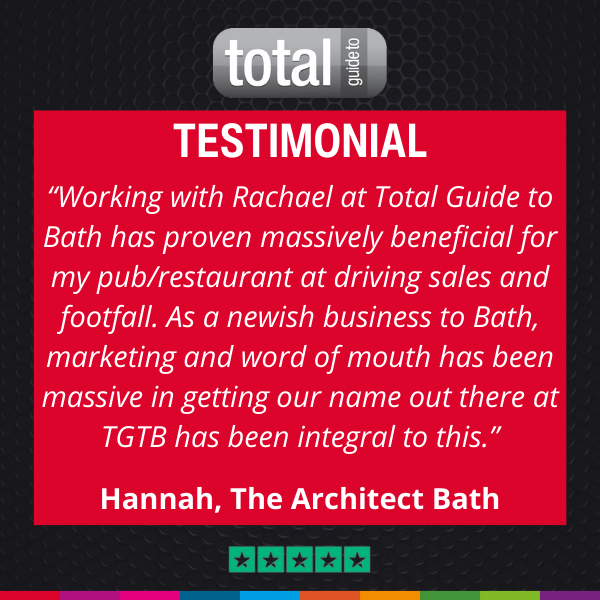In case you missed it see what’s in this section
Let's Talk
Top Tips for Planning & Executing a Successful Event
There are numerous blogs of how to run the 'perfect event’; and understanding the shortfalls in attempting to do so! We’ve put together some of our honest thoughts about events, to guide you along the way if you were to have a go yourself. Andy at The Event House has been involved in events for years and he's developed skills & acquired tricks of the trade during his time in the industry. There's a lot more to it than being organised & thinking of contingency plans - although that’s a great start of course! Andy discusses a few of his tips to think about below...
Envisage & plan your event as if you were an event attendee.
Before you commence planning too hard, try placing yourself in the shoes of the guest or customer to really enhance your planning experience. Putting this into practise, get to the event venue and physically walkthrough the event, in chronological order to understand any pitfalls in the customer experience. During the planning stage, create a detailed logistical agenda and be sure to include stuff such as customer drop-off and pick-up points; imagery of the site or venue to even what wine is being served and where the nearest hospital is, to ensure you’re truly prepared! There are hundreds of examples and every agenda differs dependent on the event - make sure no stone is left unturned.
See your event through the eyes of a customer and you're on your way to building the foundation of a good event.
You can never have enough detail.
The agendas you put together shouldn’t be for the faint-hearted! They generally should be lengthy and extremely detailed, containing the most intricate of details! However, you can always create a mini agenda for those helping out or supporting on an event, outlining the milestones and touchpoints throughout as a shortened version.
Albeit long, event agendas should be treated as a one-stop guide to the event. Often this and the project plan are the two most important documents (and of course the budget!). No detail is too small - especially for those unfamiliar with the event, giving co-workers a chance to really benefit to get an understanding of the event before it starts.
Detailed checks should be done prior to the event, including a final walkthrough, health & safety and if food is involved, just before service to ensure the right catering & its quality are to the level you expect. We’ve even previously asked for the wine bin number, why? Well if anyone were to ask if it were delicious you know its origin...and of course for your own shopping list ;) you get the gist!
In summary, be detailed and don't expect others to understand the event by simple instructions alone.
Involve others to manage expectations.
It's imperative to involve others when organising an event, particularly large ones. If it's a corporate event, there will be nothing worse than your CEO asking you questions and them expecting a different result. If you get staff on-board and brief them early on, you’re more likely to get a much better response and a better event outcome. Ensure agendas and any information that will affect your team are sent out way in advance, with a conversation to follow up confirming they fully understand what you're aiming to achieve.
Equally, on the event day(s) it's also critical for staff to be engaged and understand the flow & objective of the event - and not just to make up numbers. When and if an unlikely misfortune occurs, as an Event Manager you must be free to tackle the issue and be able to communicate effectively, as opposed to trying to control everything and your team being confused and potentially causing further alarm. If you involve people and give them responsible duties with a thorough briefing, they are bought in and can handle the smaller issues that may arise. By doing all of this, your event will look and run smoother and be deemed an even better success.
Produce an effective staff rota & responsibility matrix.
Not only should you communicate and brief all staff, but give them roles, responsibilities and for those larger events, make sure there's a proper staff rota. The gruesome truth is that on most events, staff and crew unfortunately tend to be the headache (with love of course!), whether it's deciding their crew meal, organising smoking or toilet breaks to arranging travel to the event and all the changes in between. Therefore, outline the rules right from the start with scheduled breaks and decide for them - the key is to inform and brief them as early as possible to avoid any unnecessary surprises.
When it comes to roles on an event, this is especially important, as you can't always physically control or see everything! Choose your staff carefully and give them specific tasks - therefore, if part of an event doesn't work they have the autonomy to sort with you as an escalation point if required; making your life easier and operating much more effectively as a productive team.
Get suppliers on-side.
Have your production suppliers or your event photographer been fed? No, well feed them and feed them well! My experience is if you look after the small stuff for them, then in turn they will look after you, especially when there is an issue on the night & you have to rely on them to resolve it.
Having everyone as part of the event team is crucial, whether it be your event executive to ushers. Previously, I have had events resolve without even my knowledge, and this is partly because of the relationships you build with suppliers throughout the life of an event. Whether it be food, simply some water handy or speaking to them calmly and politely when the pressures on, it goes a very long way!
Always be calm.
Whilst this goes without saying, we’ve seen far too many Event Managers panic at the first sign of something going wrong. First rule and the reason you’re onsite - an event will not run perfectly to plan, so you’re available to action and be the conduit when necessary. We’re not suggesting an event can't be pretty much perfect, as it can, but things change and so must you. Be flexible and be prepared to adapt to what comes your way and appreciate 'the original plan' may not be the end result. Often things happen on an event, which work out for the better yet weren’t part of the planned outcome.
On the contrary, if you're working too hard on an event, the planning has gone awry somewhere along the way. Whatever materialises on an event, often things have to change due to unforeseen circumstances and those are the times you have to be calm, professional and assertive to resolve them. One customer’s testimony, which is a great analogy of how an event manager should operate - 'you have the knack of swimming like mad under water, but glide above the surface like a swan.' None of your guests can see if you worry inside; so, in the event you are and let it show to customers or your staff, you'll more often than not lose control.
Bring spares.
Try to anticipate someone forgetting something! We’ve had had the pleasure in giving away spare socks, shirts, even shoes to event staff in order to keep the event uniformed and professional. Of course, you can't bring Noah's Ark with you, but you can predict what is likely to be missed by the type of event you are organising. A few obvious ones include universal adaptors, phone chargers (including mobile power banks for on the go!), pens, notepads and pairs of socks or black ties to save the day!
That's all for now...
These are just a few hints and tips we’ve discovered along the way. It's often hard to articulate what to do as an Event Manager as you invariably would have that natural instinct, which of course is hard to teach. This blog will hopefully add a few notches to your skills for future events.
If you have any questions about this blog or any event questions or enquiries, Andy at The Event House will be more than happy to have an informal chat, so please get in touch via calling 07980 333370, emailing [email protected] or visit The Event House website.
Weather in Bath
Listings


















